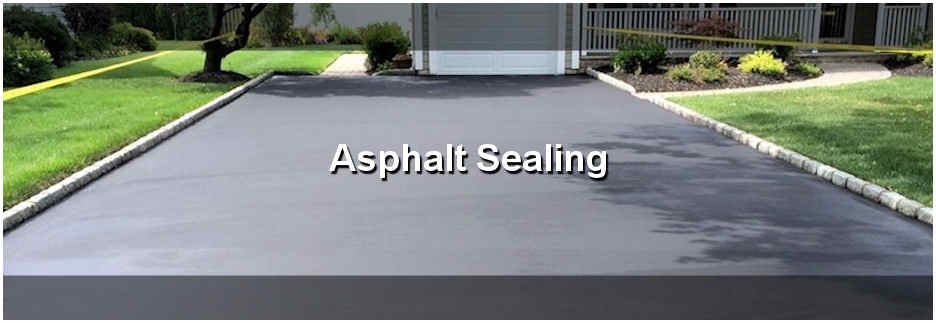Take Full Advantage Of Safety with Angle Parking Lot: Superior Asphalt Sealing
Take Full Advantage Of Safety with Angle Parking Lot: Superior Asphalt Sealing
Blog Article
Cold Mix Asphalt Vs. Hot Mix Asphalt: Which Is Right for You?

Structure Distinctions
Cold mix asphalt is produced by emulsifying the asphalt binder with water and an emulsifying representative prior to mixing it with accumulation. The hot mix asphalt manufacturing process involves heating up the aggregate and asphalt binder separately prior to combining them at the asphalt plant.
Moreover, chilly mix asphalt often tends to be much less dense and more versatile than warm mix asphalt. This versatility makes it better matched for locations with greater levels of activity, such as driveways or roadways with hefty traffic. In comparison, hot mix asphalt is recognized for its high longevity and resistance to rutting and breaking, making it a preferred selection for freeways and high-traffic roadways where durability is critical.
Installation Process Variances
The process of setting up chilly mix and warm mix asphalt exhibits noteworthy differences in their procedures and requirements. In comparison, hot mix asphalt requires a much more intricate installation process. Due to the heating demands, warm mix asphalt installations are normally carried out by professionals with specific tools, ensuring a much more irreversible and structurally audio outcome.
Longevity and Longevity Aspects
When taking into consideration asphalt choices, durability and durability are essential factors to evaluate for lasting pavement efficiency. Hot mix asphalt (HMA) is known for its exceptional longevity and longevity. The high temperatures during the laying and mixing process allow for better compaction, resulting in a denser and more powerful pavement framework. This results in HMA being much more resistant to rush hour loads, harsh weather, and the impacts of aging contrasted to chilly mix asphalt (CMA)
In regards to longevity, HMA commonly outshines CMA due to its premium stamina and resistance residential properties. HMA pavements have a longer life span, requiring much less frequent fixings and maintenance, which can equate to set you back savings over time. Additionally, HMA sidewalks are more quickly personalized to satisfy details project demands, further improving their longevity.
Expense Factors To Consider
Taking into consideration the monetary effects is a vital aspect when examining the choice in between warm mix asphalt (HMA) and chilly mix asphalt (CMA) for sidewalk jobs. While the first cost of warm mix asphalt is normally greater than that of cool mix asphalt, HMA commonly offers an extra cost-efficient remedy in the lengthy run due to its premium durability and long life.
In addition to product prices, it's essential to take into consideration the costs associated with installment and maintenance when contrasting HMA and CMA. HMA generally requires specialized equipment and competent labor for proper installment, which can influence overall job costs. On the other hand, CMA is less complicated to deal with and can typically be used making use of simpler techniques, potentially decreasing installation expenses. Inevitably, the choice between HMA and CMA ought to take into account not simply the preliminary expense however also the long-lasting economic implications to figure out the most affordable alternative for the details sidewalk task.
Environmental Influence Contrast
Contrast of the environmental effects between hot mix asphalt (HMA) and cold mix asphalt (CMA) discloses unique distinctions in sustainability methods. HMA production needs high temperature levels, leading to boosted power consumption and greenhouse gas exhausts.
In addition, the usage of CMA typically entails reusing existing asphalt sidewalk, advertising source preservation and decreasing the quantity of waste sent out to garbage dumps. By deciding for CMA over HMA, roadway building jobs can contribute favorably to ecological conservation efforts.
Final Thought
In verdict, the option in between chilly mix asphalt (CMA) and warm mix asphalt (HMA) relies on numerous elements such as structure, setup process, sturdiness, longevity, expense, and ecological influence. asphalt repair. While CMA uses a quick and cost-effective service for small repairs, HMA makes sure remarkable sturdiness and long life for heavy web traffic locations. Consider these elements meticulously to establish which kind of asphalt is the appropriate selection for your paving requires

Taking into consideration the financial ramifications is an important aspect when assessing the selection in between warm mix asphalt (HMA) and cold mix asphalt patch repair asphalt (CMA) for sidewalk projects. While the initial expense of hot mix asphalt is normally greater than that of cold mix asphalt, HMA typically provides a more economical option in the long run due to its remarkable sturdiness and long life. angle parking.Comparison of the ecological influences in between warm mix asphalt (HMA) and cool mix asphalt (CMA) reveals unique distinctions in sustainability methods.In final thought, the option between cold mix asphalt (CMA) and warm mix asphalt (HMA) depends on different factors such as structure, setup procedure, toughness, longevity, cost, and environmental impact
Report this page